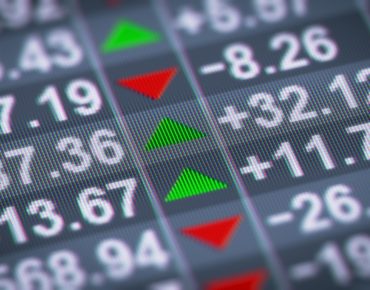FintechAI on Wall Street: Robo-Analysts Beat Human Stock Pickers

Think of it, you kick back while a stock market AI makes you richer than Wall Street stock pickers. Besides the lottery, we defy you to come up with a better financial fantasy.
Actually, it’s not so wild a dream. According to Indiana University researchers, “robo-analysts” “earn abnormal returns that are statistically and economically significant” (see below).
Robo-analysts are machines that use natural language processing, machine learning and other big data analytics techniques to conduct automated research analysis. Among their advantages over “traditional analysts” (humans), according to the researcher: they are “less subject to behavioral biases and conflicts of interest,” and they’re better at “facilitating a greater scale of research production” and “revise their reports more frequently,” (i.e., work harder – editor). The researchers also said that “portfolios formed based on the buy recommendations of robo-analysts appear to outperform those of human analysts.”
“Overall, our results suggest that robo-analysts are a valuable, alternative information intermediary to traditional sell-side analysts,” said IU Kelley School of Business associate professors Kenneth Merkley and Joseph Pacelli, and doctoral student Braiden Coleman.
Based on their analysis of 75,000 reports from seven robo-analyst firms since 2004, the researchers conclude that robo-analysts are most effective picking stock winners – as opposed to their recommendations to sell short.
“Our portfolio analyses indicate several striking trends,” they said. “First, the portfolios formed based on the buy recommendations of robo-analysts earn abnormal returns that are statistically and economically significant (annualized returns range between 6.4-6.9 percent). In contrast, the returns following portfolios formed based on human analyst buy recommendations earn abnormal returns that are weaker in terms of statistical and economic significance (annualized returns range between 1.2-1.7 percent).”
The result: “advancements in financial technology (Fintech) are revolutionizing product offerings across the financial services industry,” the researchers said, citing an Accenture finding that “as of 2018, more than $50 billion has been invested in 2,500 companies that are redefining the way in which individuals participate in financial markets.
It seems intuitively plausible that machine learning is well suited to Wall Street bet sizing – AI can amass and analyze quantities of data, and encompassing a range of stock performance factors, exceeding human capacity. After all, AIs handily beat humans at poker, 3D chess and go, not to mention handling the mind bending complexities of AIOps, so stock picking must be within their reach, right?
Right, say the researchers, stating that “robo-analysts can collect and parse large volumes of financial reports and integrate details into their models more rapidly and completely than traditional analysts, who face cognitive constraints such as limited attention, fatigue, and other cognitive biases.”
Case in point: robo-analysts wade into voluminous, eye-glazing corporate disclosures and pull insights from them rather than “piggy-backing” on quarterly earnings announcements, as human analysts tend to do.
Yet another potential advantage: fintechAI stock picks are based on technical analysis rather than subjective insights and thus are more likely to follow the dictum cited in the movie “Wall Street”: “Don’t get emotional about stocks.”
 Among the data sources utilized by New Constructs, a robo-analyst firm cited in the study, range “from income statements and balance sheets to the footnotes at the bottom of reports to push out picks,” according to a Bloomberg story on the Indiana University study. “We’re not doing sentiment, we’re not doing momentum, we’re not doing what I would call all these sexy, short-term metrics,” New Constructs CEO David Trainer told Bloomberg. “We can give them good, old-fashioned analytical rigor to insert in their process at little to no cost.”
Among the data sources utilized by New Constructs, a robo-analyst firm cited in the study, range “from income statements and balance sheets to the footnotes at the bottom of reports to push out picks,” according to a Bloomberg story on the Indiana University study. “We’re not doing sentiment, we’re not doing momentum, we’re not doing what I would call all these sexy, short-term metrics,” New Constructs CEO David Trainer told Bloomberg. “We can give them good, old-fashioned analytical rigor to insert in their process at little to no cost.”
On the other hand, argue traditional stock pickers, there are times when information based on human interaction, and emotion, can move markets. The study’s authors agree.
“…automating the research task is not costless,” they said. “Robo-analysts are likely less able to incorporate non-financial or subjective information into their analysis (i.e., ‘soft information’), such as information gleaned from conference calls or discussions with management. In addition, Robo-analysts cannot easily replace the boutique services that institutional investors increasingly value and place emphasis on, which include facilitating access to management and organizing specialized investor conferences.”











